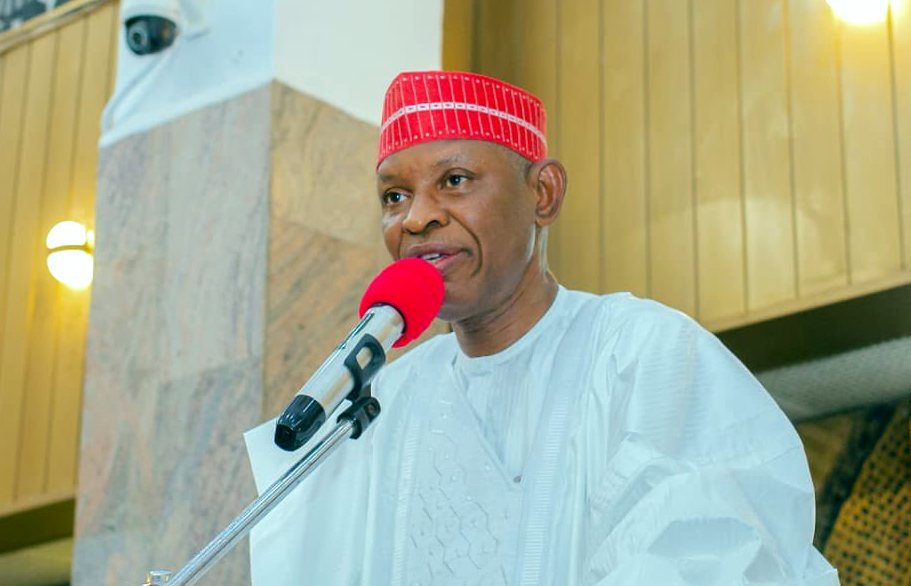The Kano state government is embarking on a significant project to revitalize the Challawa Water Treatment Plant, a historical landmark and critical infrastructure for the state’s water supply. Built in 1930 during the reign of Emir Abdullahi Bayero, the plant stands as the first of its kind in Kano, originally designed to provide 20 million cubic liters of water daily to the burgeoning city. However, years of neglect, culminating in eight years of dormancy under the previous administration, have rendered the plant inoperable, leaving it vulnerable to vandalism and theft. This deterioration has contributed significantly to the persistent water scarcity plaguing the Kano metropolis and surrounding areas, prompting the current administration to prioritize its reactivation.
The current state of the Challawa plant reflects a stark picture of disrepair. Essential components such as pipes, raw water pumps, and electrical starters have been systematically looted, crippling the plant’s functionality. Alhaji Garba Bichi, the Managing Director of the State Water Board, highlighted the extent of the damage during a recent inspection of the facility. He emphasized the direct correlation between the plant’s inactivity and the widespread water shortages experienced across Kano city, underscoring the urgency of the government’s intervention. The reactivation project aims not only to restore the plant’s historical significance but also, more importantly, to alleviate the pressing water crisis affecting the population.
The financial implications of reviving the Challawa plant are substantial. Haruna Doguwa, the state Commissioner of Water Resources, estimates the cost of the reactivation project to be approximately $3.5 million. This significant investment reflects the comprehensive nature of the required repairs and replacements, encompassing the procurement of essential equipment lost to vandalism and theft. Doguwa confirmed that the government has already initiated the process of ordering the necessary equipment, indicating a committed approach to addressing the water supply challenges. This commitment signifies not only a short-term solution to the immediate crisis but also a long-term investment in the state’s water infrastructure.
The challenges facing Kano’s water supply extend beyond the Challawa plant. Two water tanks located at Goron Dutse have also suffered from similar neglect and looting, further exacerbating the water scarcity issue. Commissioner Doguwa, having personally inspected these tanks, expressed his condemnation of the widespread looting and its detrimental impact on the water supply network. He noted that the theft of equipment at these facilities has significantly hampered the state’s ability to provide consistent water service to its residents. The Goron Dutse tanks, like the Challawa plant, represent critical infrastructure requiring immediate attention to restore their operational capacity.
Despite the significant challenges, the Kano state government remains optimistic about the restoration project. Commissioner Doguwa has assured the public that concerted efforts are underway to address the situation. These efforts encompass not only the replacement of stolen equipment at the Challawa plant and the Goron Dutse tanks but also broader initiatives aimed at improving the overall water supply system. This commitment involves both immediate repairs and long-term strategic planning to ensure the sustainable provision of water resources for the growing population of Kano. The reactivation of the Challawa plant, a historical symbol of Kano’s water infrastructure, stands as a central element in this comprehensive plan.
The revitalization of the Challawa Water Treatment Plant represents a crucial step towards addressing the long-standing water scarcity issue plaguing Kano. The government’s investment of $3.5 million, coupled with its efforts to replace stolen equipment and restore the Goron Dutse water tanks, demonstrates a clear commitment to improving water infrastructure and ensuring the well-being of its citizens. The successful completion of this project will not only alleviate the current water crisis but also lay the groundwork for a more sustainable and resilient water supply system for the future, ensuring access to this essential resource for generations to come. This multifaceted approach, combining historical restoration with modern upgrades, signifies a comprehensive strategy to address the complex challenges facing Kano’s water resources.














